Professional gardeners reveal even they experience garden guilt sometimes – here are 7 ways to defeat the need for a 'perfect' garden
It's a common experience to feel like your yard isn't good enough, but experts say it's easy to switch your mindset
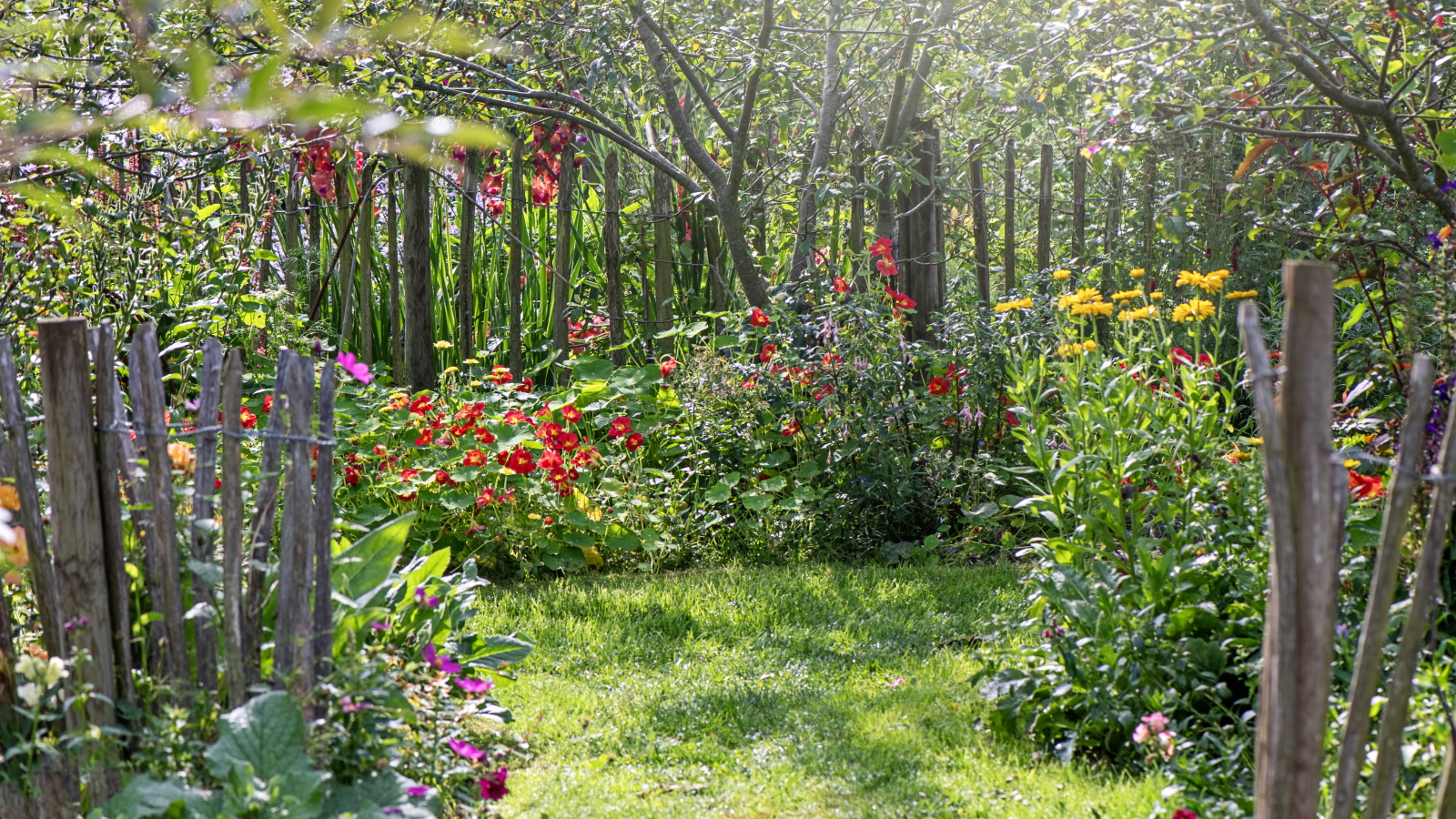

Those of us who garden know just how rewarding it is to nurture plants and watch them thrive. But, it can also be all too easy to set a certain level of expectations for yourself in your backyard, only to feel a sense of guilt and disappointment when things don't quite go to plan.
Whether you are trying to grow plants for the first time or you're a seasoned pro aiming to bring a new backyard idea to life, things can often go wrong. Not having as much time as you would like for your yard and comparing your outdoor space to others can leave you feeling glum and demotivated.
If this sounds familiar, don't worry. It's a common experience all gardeners feel at some point or another. Here, professional gardeners share their experiences and top tips on how to combat garden guilt, so you can gain a new perspective on your yard and practice mindful gardening this year.
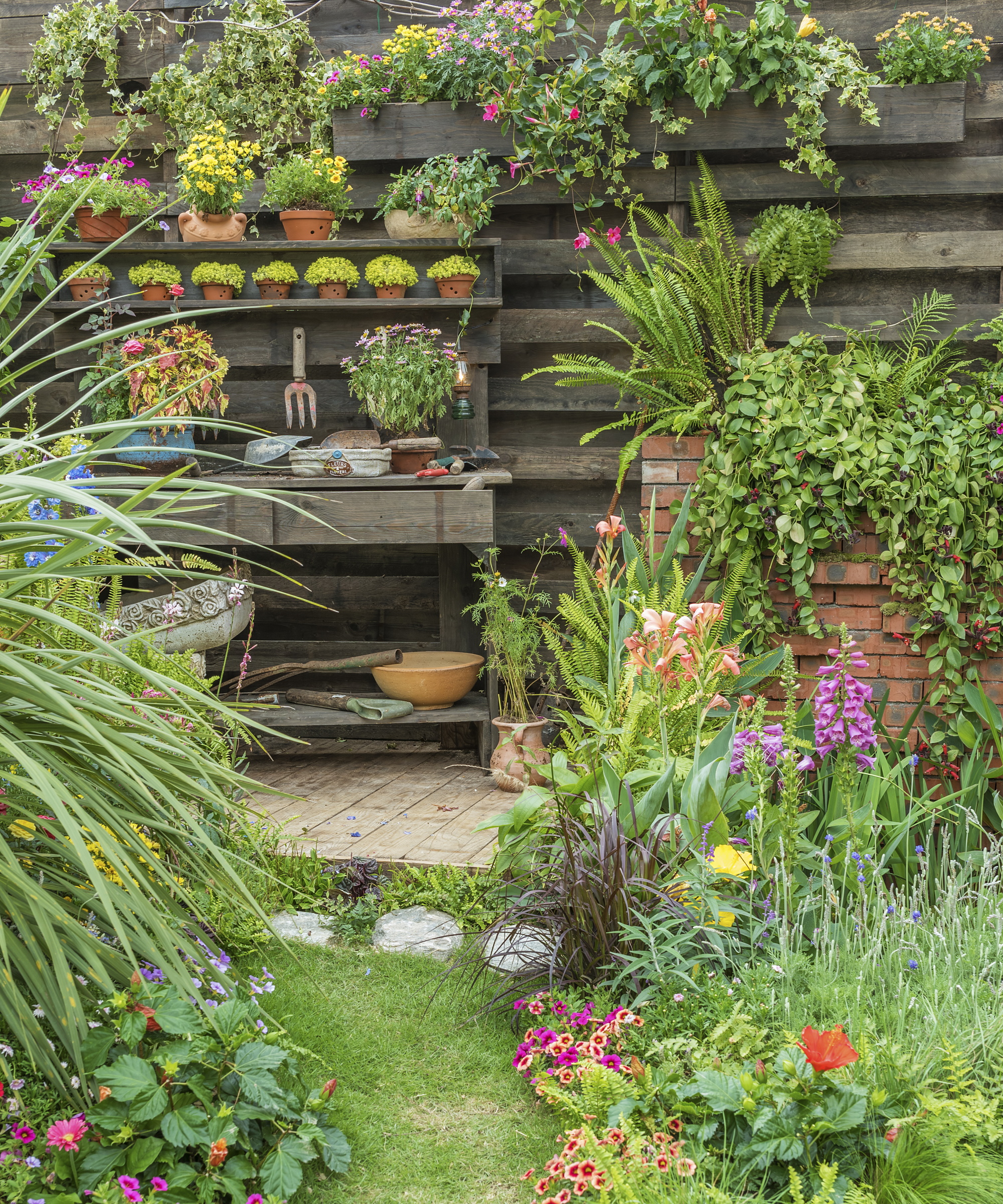
7 ways to combat garden guilt
'I don’t think there is a gardener out there who hasn’t experienced garden guilt at least once,' says Nicole Dillon of Breemar Flower Farm. 'The seeds you forgot about, the plant you over-loved with water, the weeds that got carried away during that August heat wave. These gardening mishaps happen to the best of us, even seasoned gardeners,' she adds.
We spoke to a range of professional gardeners to find out how they go about combatting garden guilt and this is what they said.
1. Create intentional time for gardening
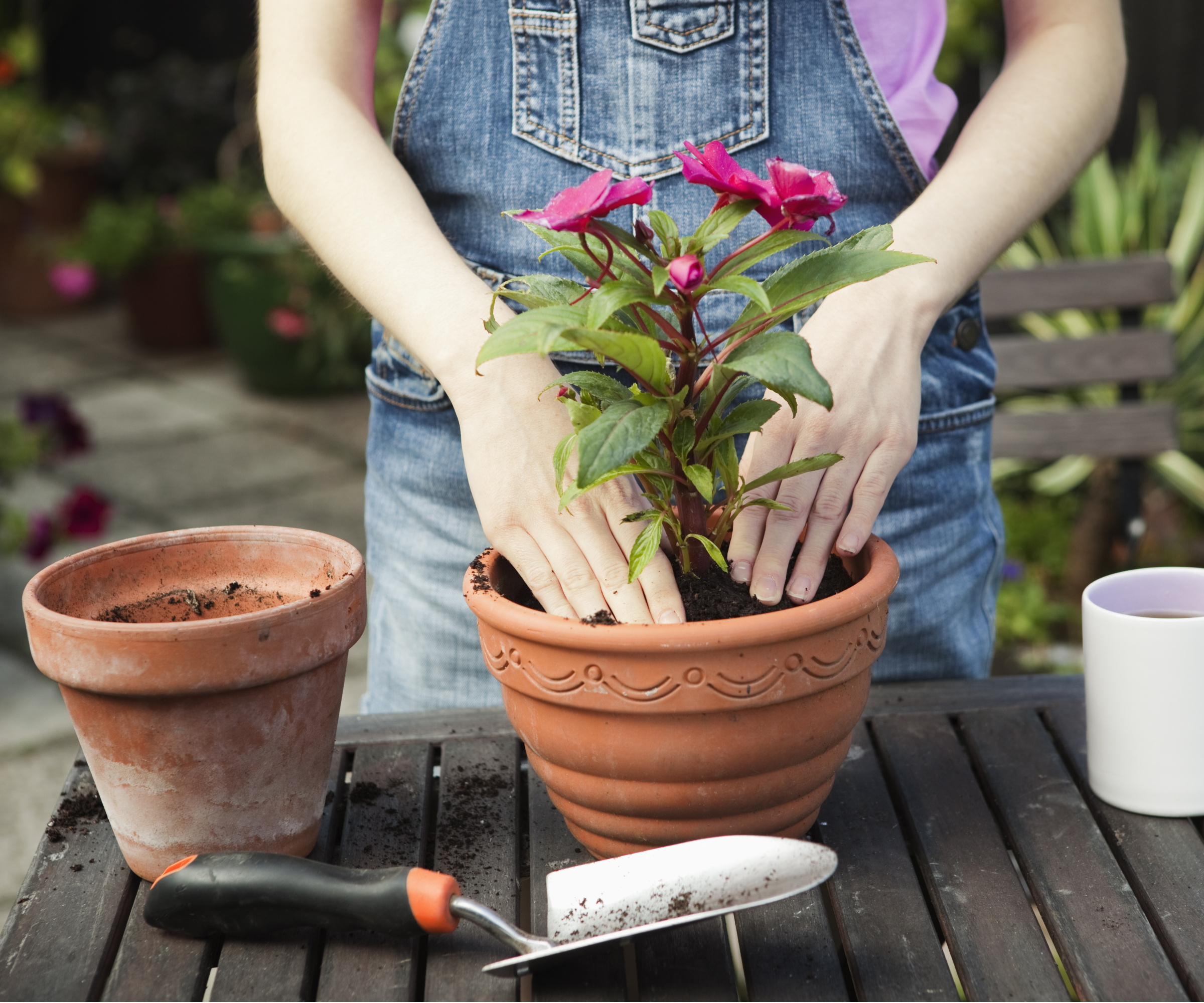
Many gardeners experience garden guilt when life gets busy and there isn't so much time to be in the backyard. It can be easy to put gardening on the back burner while other things take priority, but you might suddenly realize it's been weeks, maybe even months, since you've put on your gardening gloves.
'Going into each season, it's important to set yourself up for success by creating a general seed sowing schedule and cut out time each week to be in the garden,' advises growing expert Sarah Akovic.
'For example, each morning with my coffee I check on everything before work and on weekends I spend most of my time outdoors gardening. Having an outline can set you up for success and alleviate any guilt of time management,' she adds.
As Sarah notes, setting intentional time to garden, along with gardening goals you would like to achieve in that time, can help you feel productive in your yard. Just make sure you choose an amount of time that works for you and helps establish a routine you can stick to.
You'll be ticking off all the tasks on your spring gardening checklist or fall gardening checklist in no time.
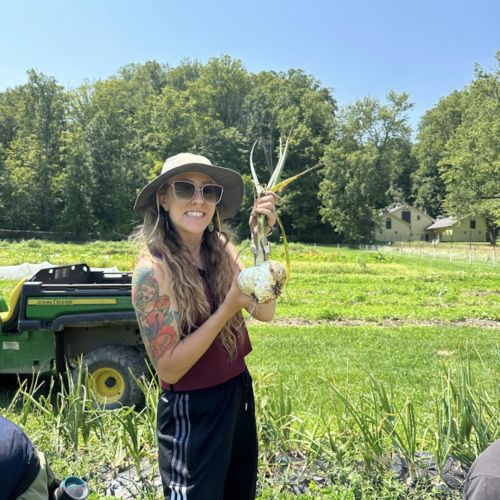
Sarah currently teaches Crop Production at Lorain County Community College for the Sustainable Agriculture Program. She previously managed the Greenhouse at Case Western Reserve University Farm, has worked as a Regenerative Farmer on various farms, and completed grant work to enhance food justice in Lorain, Ohio.
2. See gardening 'failures' as lessons
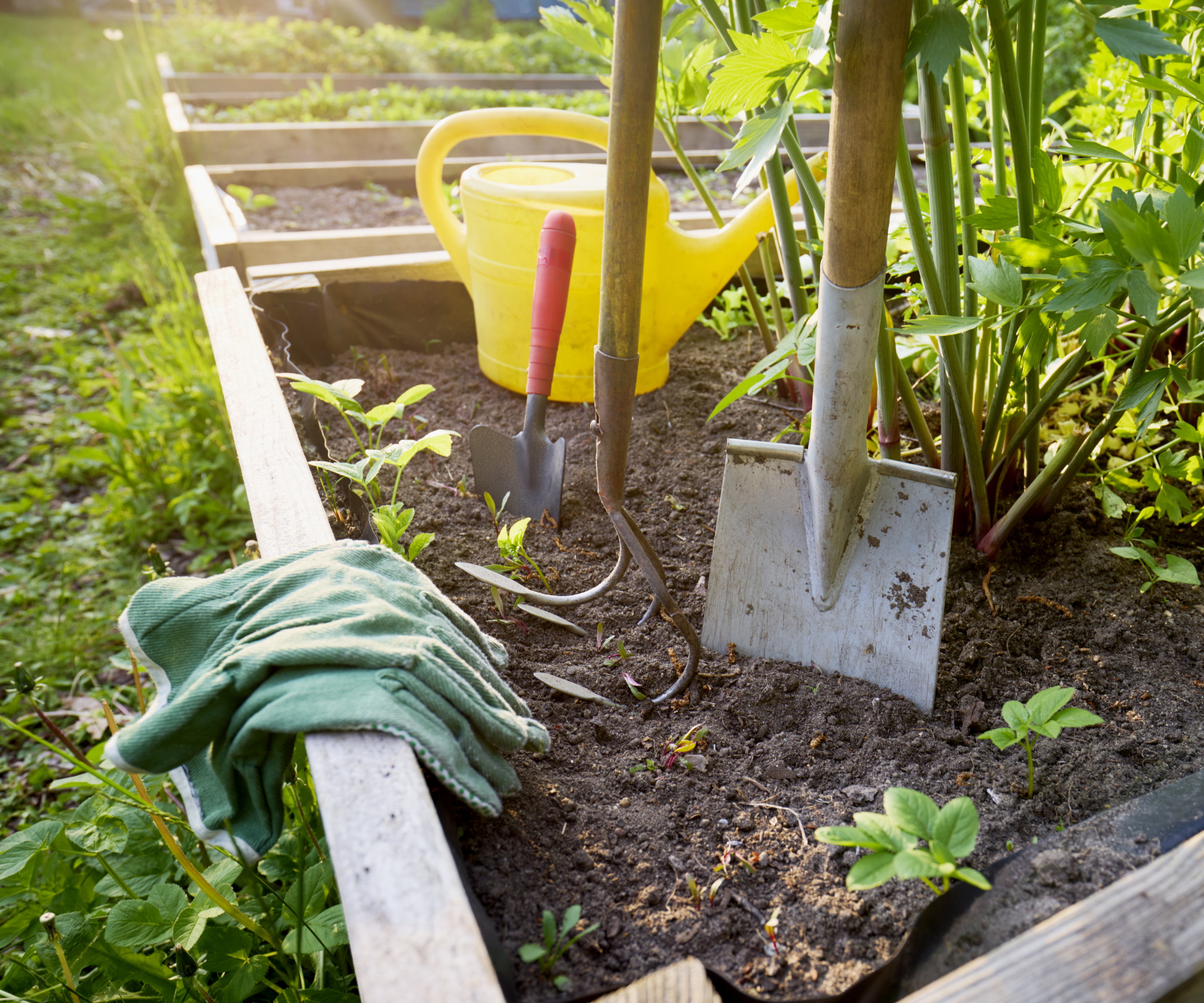
There's no denying facing pests that destroy plants or watching your hydrangea wilt can be disheartening, but things going wrong is just part of being a gardener.
'As a lifelong gardener, I’ve come to understand that no gardener started out with all the answers,' says Barbi Gardiner, founder of The Outdoor Apothecary. 'Each year and gardening season offers new ways to learn and grow. Some years are more successful, but each year teaches something new.'
Mistakes are simply opportunities to learn how to do better next time, rather than a sign to give up with work in your backyard.
'There’s always more to learn, and instead of feeling discouraged, I try to stay curious and open to the lessons nature has to teach me,' Barbi adds.
Part of the learning process is taking the time to understand why something didn't quite go to plan and educate yourself on how to avoid it next time.
'If you are learning something new, your garden is good enough. Plants are our teachers and this will help you look at your garden through a different lens,' Sarah adds.

Barbi Gardiner is the owner of The Outdoor Apothecary, which was born out of her belief that nature is medicine, and that by getting back to simple, self-reliant living we can reconnect with nature on a deeper level.
3. Focus on small wins with a garden journal
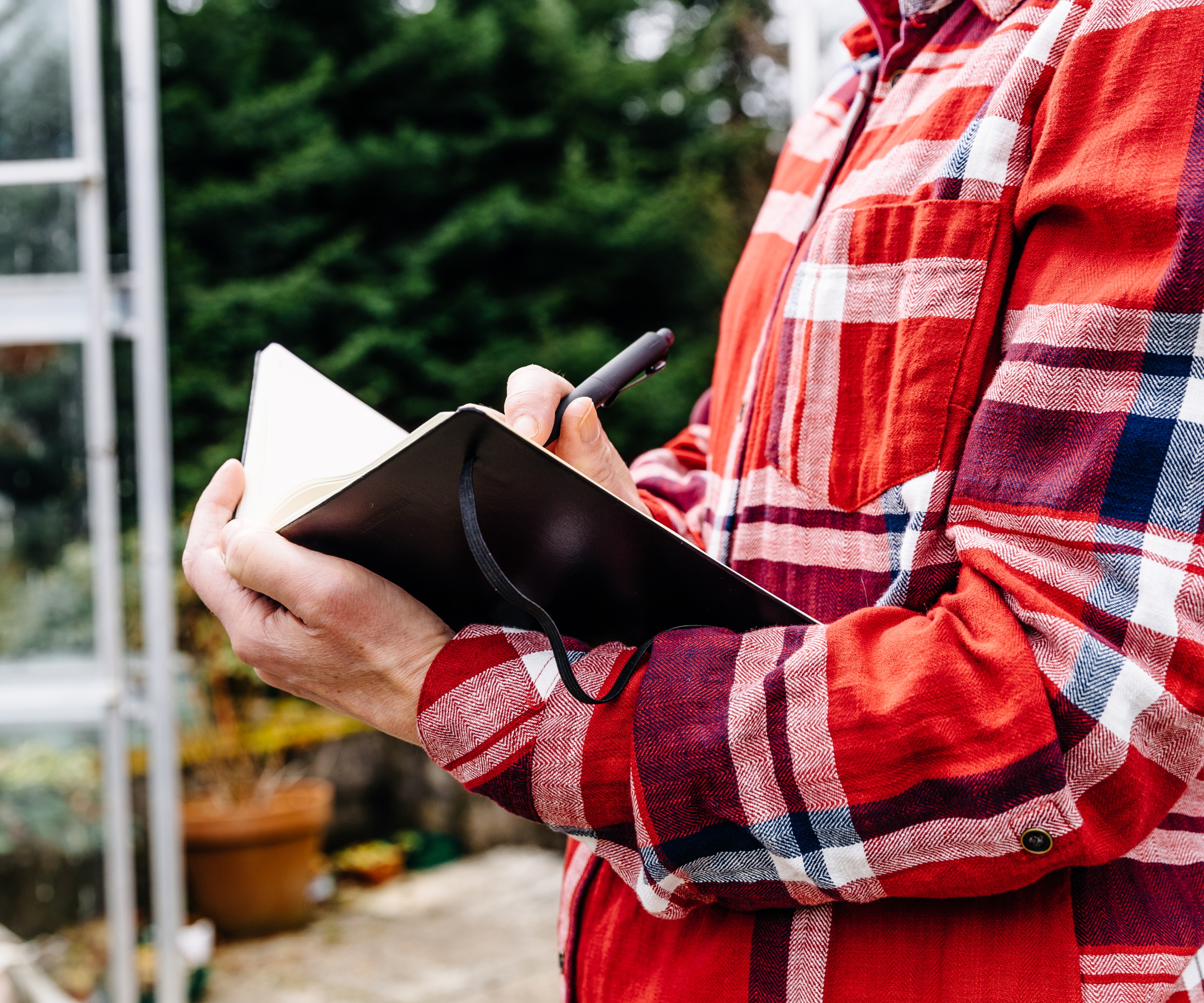
As humans, we have a tendency to focus on the negatives and don't always give as much time to the positive things we have going for us. The same can be said for gardening, but it's important to give yourself credit where it's due.
'Many gardeners find joy in journaling about their gardens. It is a good practice to get into, even if you just take a more relaxed approach and take lots of photos,' suggests Nicole Dillon.
This is an especially helpful thing to do when first planning a garden, making a note of all the small things you achieve in working towards the garden of your dreams - from setting up a compost bin to getting rid of weeds.
There are plenty of garden journals on the market to help you with this task - this gardener's logbook from Amazon has space to note successes and reflect on how to improve elsewhere.

Nicole Dillon is a micro-flower farmer and owner of Breemar Flower Farm based in Ashland, VA. With a profound love for gardening, Nicole has transformed a passion for nurturing plants into a thriving business. Specializing in growing peonies and cut flowers, Nicole shares her expertise through a weekly blog aimed at home gardeners. Her mission is to inspire and educate gardeners of all levels, helping them create beautiful, sustainable spaces. Nicole also volunteers as a master gardener in her hometown.
4. Celebrate any kind of growing you do
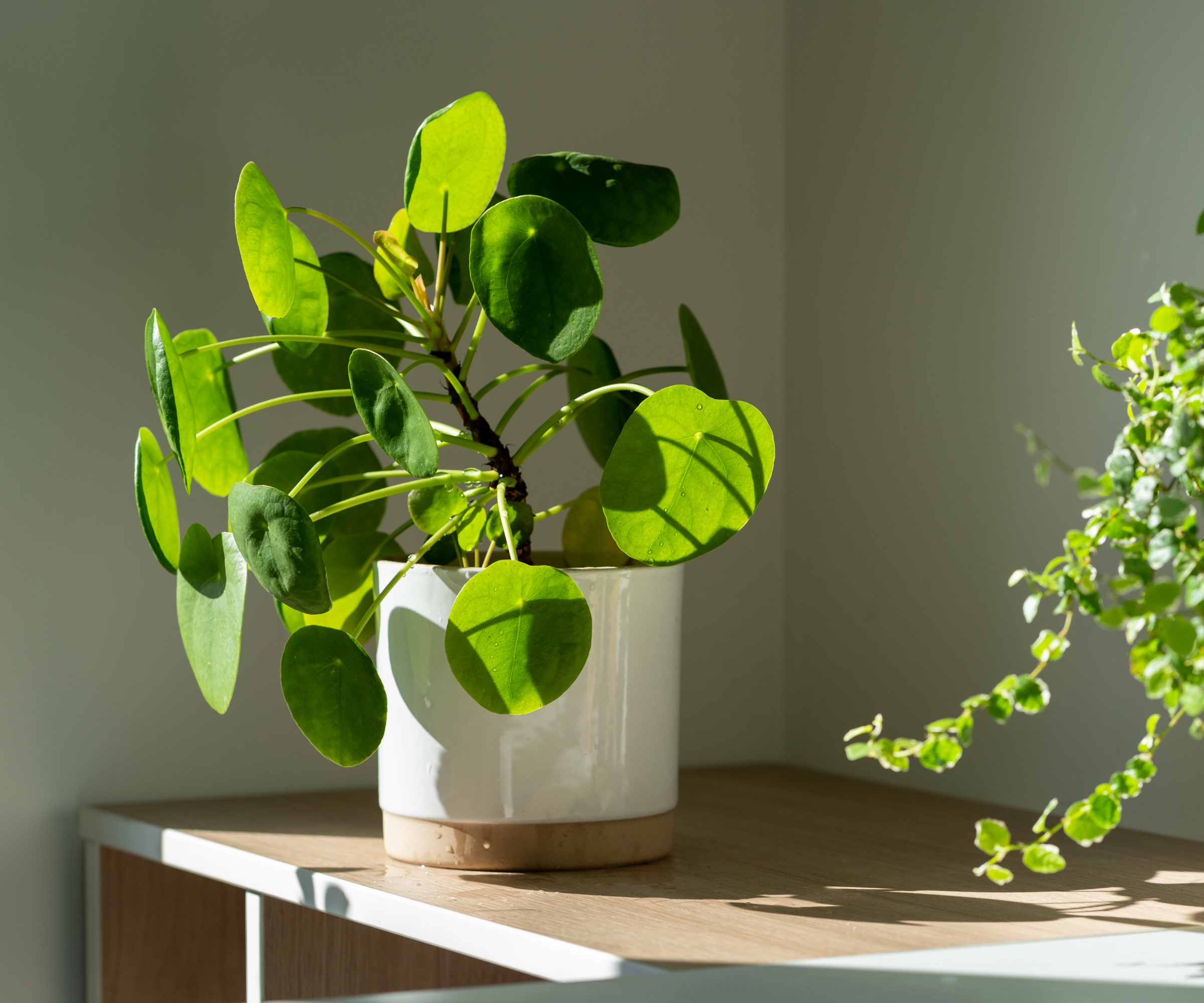
Garden guilt can also stem from comparison, whether that's looking at social media and seeing perfectly curated gardens or not having as large a gardening space as others. The important thing to remember here is that growing any kind of plant - including the best indoor plants - is a form of gardening.
It doesn't make a difference whether you have a container garden, abundant kitchen garden, or just a few houseplant propagations on your windowsill, finding the joy in watching even the smallest of plants grow is what really counts.
If you're not sure where to start, this marigold grow kit from Nature Hills is perfect for even the novice gardener. There are also plenty of other plants for beginners to explore.
5. Keep asking questions
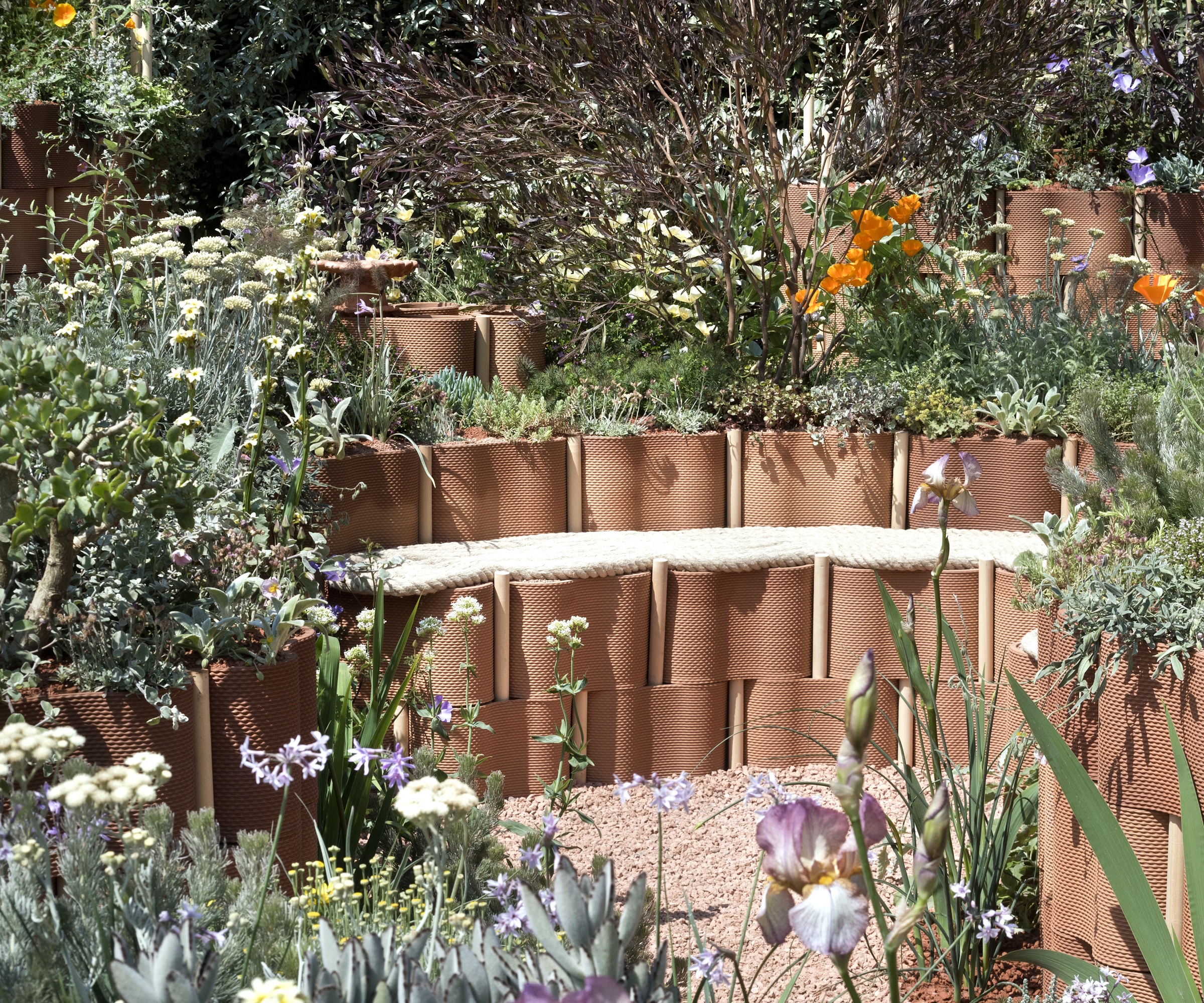
As previously mentioned, there will always be new lessons to learn in the garden and there's no need to feel guilty or ashamed about not knowing everything straight away. Experts say it's key to keep asking questions and talking to others.
'Another thing that has helped me overcome garden anxiety, is taking courses at my local botanical garden,' says Nicole. 'They give me confidence, and other gardeners to talk to, and sometimes they even walk through the garden and point out their garden woes,' she explains.
'It’s impossible to know everything there is to know about gardening. You will always have something more to learn or another plant to fall in love with,' she adds.
6. Try experimenting in your garden
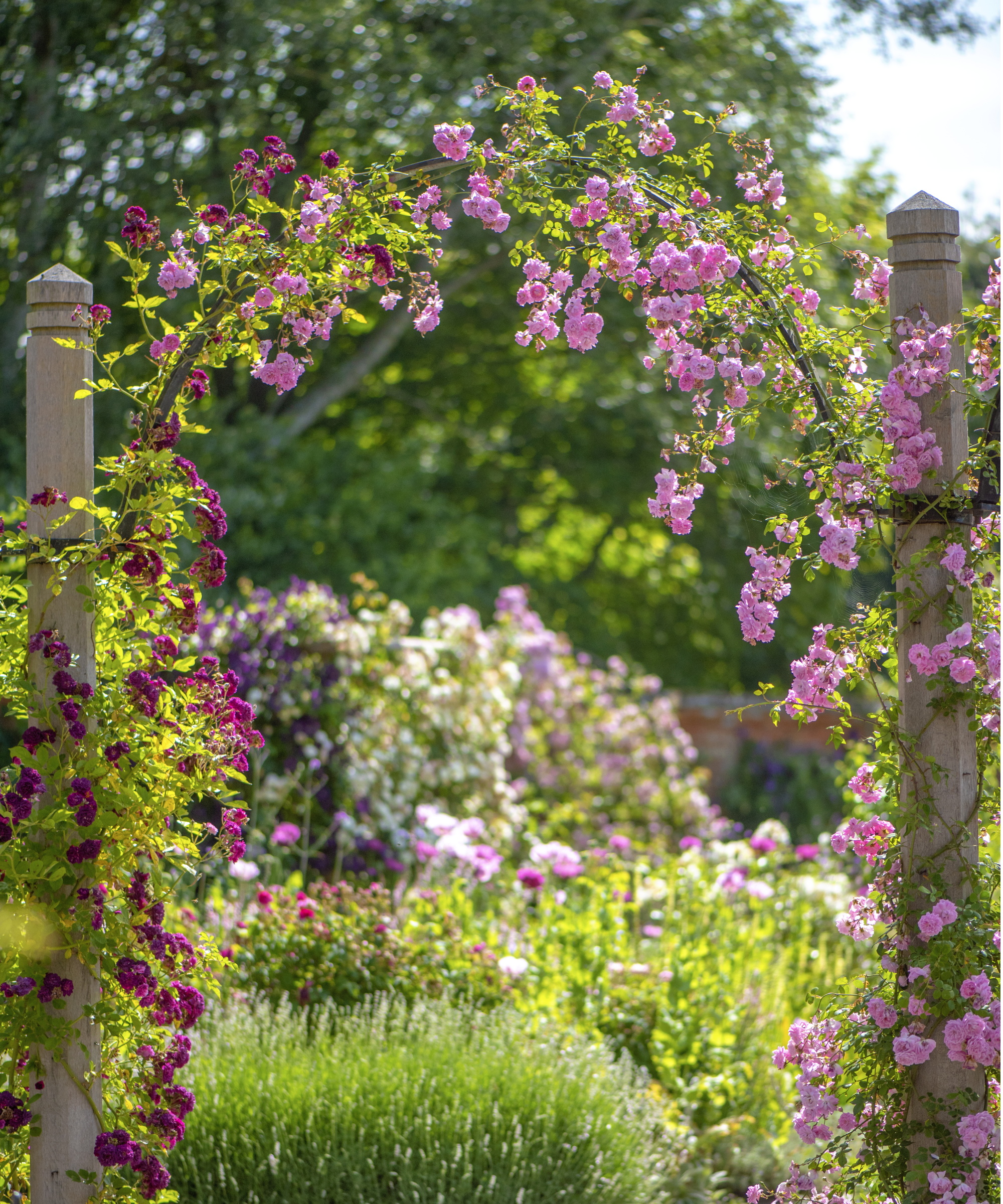
If you're struck with garden guilt, you might just need to change up what you're doing in your yard. It could be time to take on a new project, whether that's tasks for beginner gardeners or something bigger like planting climbing roses on a trellis arch (from QVC).
'Try using fast-growing flowering annuals if you want instant gratification, while you wait for the perennials and shrubs to fill in,' suggests garden designer Laura Janney. 'They will add immediate color and fullness,' she says.
You can also try building a DIY raised bed or create a vertical garden.
'Most of all, have fun,' Laura adds. 'At the end of the day, gardening should be joyful, not stressful. Try not to put the pressure on achieving that perfect garden and enjoy the process,' she says.
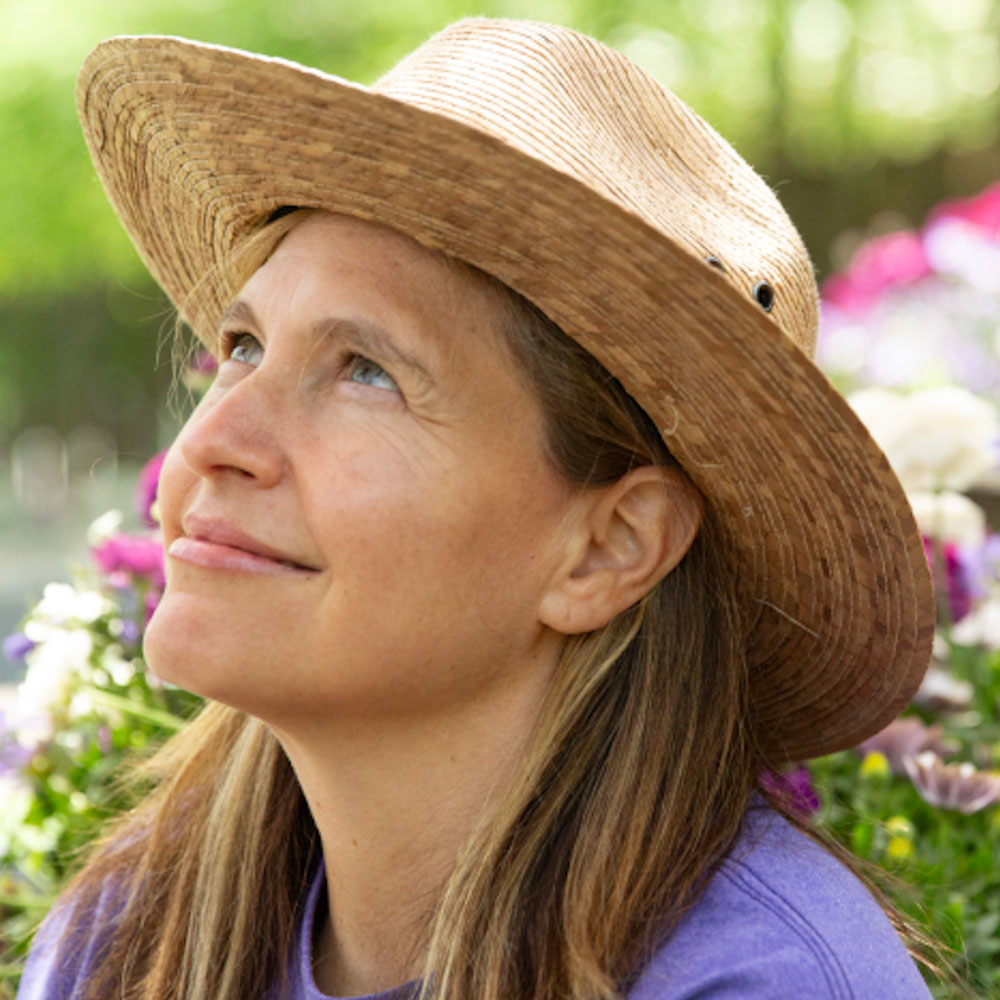
Laura is the Founder and Owner of The Inspired Garden. A winner of the 2024 Houzz Design award, Laura has over 20 years of experience in gardening and working with clients designing beautiful gardens. With multiple courses under her belt, Laura would make a great resource on all things gardening.
7. Remember gardens aren't meant to look perfect all the time
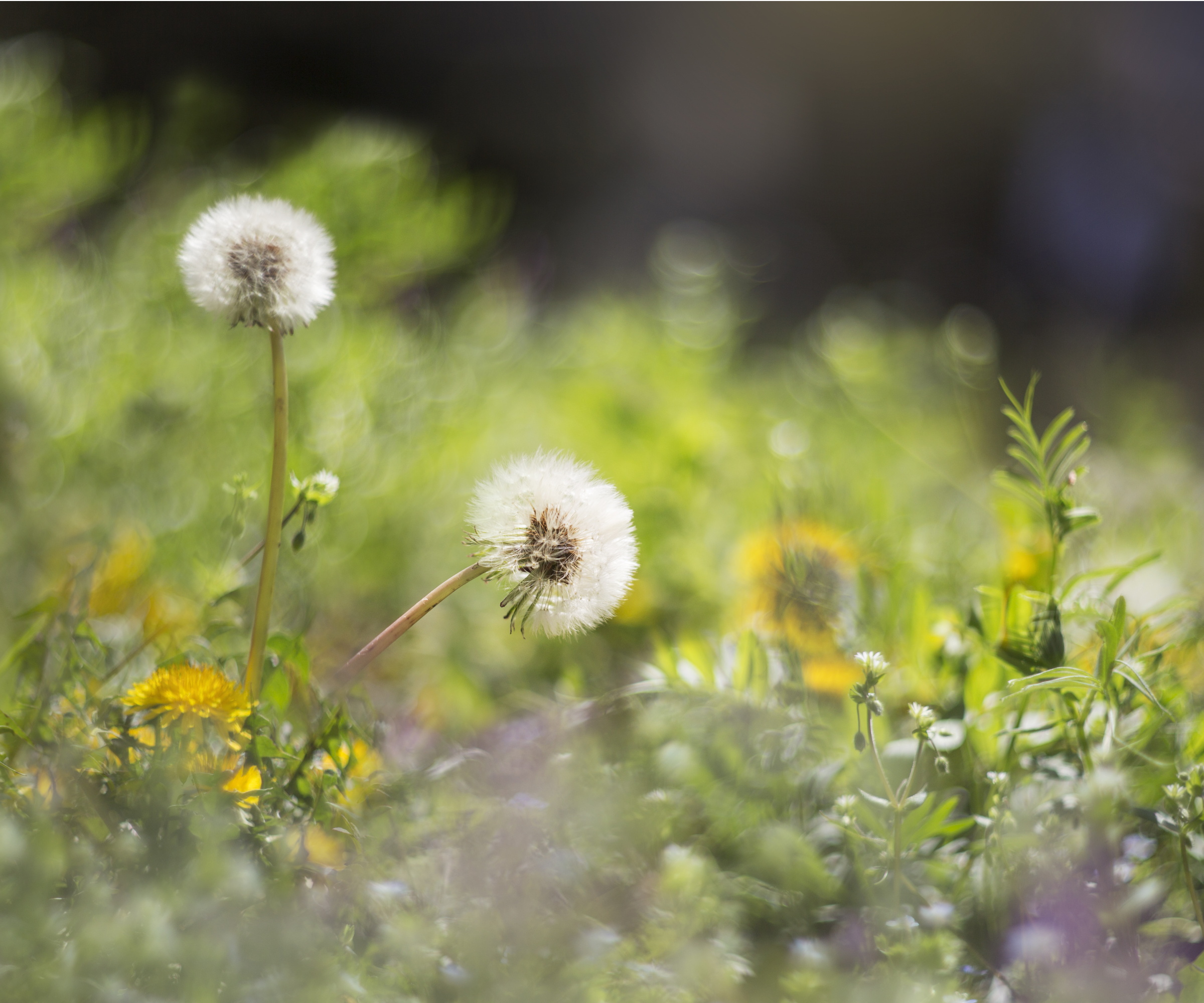
Formal garden design isn't for everyone and recent garden trends reflect a move towards naturalistic planting and letting things grow wild. Keeping in mind that your garden is full of living plants that change with the seasons is a helpful way to combat garden guilt.
'Perfection just isn’t realistic in gardening - nature has its own plans, and I’ve learned to embrace that,' Barbi Gardiner says. 'There are times when my garden is overflowing, and other times when plants struggle due to weather, pests, or things beyond my control.
'Gardening is about being in tune with the land, not about maintaining a perfect, weed free space. When I shift my perspective from perfection to connection, I find that I enjoy my garden more.'
Of course, in the age of social media it can be tricky to avoid images of perfectly groomed gardens online, but Nicole reminds us: 'These are highlight reels. These gardens have their best foot forward. They are prepared for photos and taken during just the right time of day and at just the right angle.'
There are many ways to embrace wild gardening, too, which can set you up with a yard designed to embrace imperfections. Try spreading these wildflower seeds from Amazon to get you started.
FAQs
What are the best low-maintenance garden plants?
If you're someone with limited time to spend gardening, but you still want an abundance of color in your outdoor space, try planting low-maintenance garden plants. Some of the best include coneflowers, hydrangeas, coral bells, and a range of ornamental grasses.
By removing expectations of how your garden 'should' look, setting attainable goals, and making time for gardening, it's easy to combat feelings of garden guilt and reconnect with your yard and plants. Not only that, but adopting a mindset like this can allow you to reap the benefits of 'green therapy', where gardening helps to improve mental health and physical health in a number of ways.
Sign up to the Homes & Gardens newsletter
Design expertise in your inbox – from inspiring decorating ideas and beautiful celebrity homes to practical gardening advice and shopping round-ups.

Tenielle is a Gardens News Writer at Homes & Gardens. She holds a qualification in MA Magazine Journalism and has over six years of journalistic experience. Before coming to Homes & Gardens, Tenielle was in the editorial department at the Royal Horticultural Society and worked on The Garden magazine. As our in-house houseplant expert, Tenielle writes on a range of solutions to houseplant problems, as well as other 'how to' guides, inspiring garden projects, and the latest gardening news. When she isn't writing, Tenielle can be found propagating her ever-growing collection of indoor plants, helping others overcome common houseplant pests and diseases, volunteering at a local gardening club, and attending gardening workshops, like a composting masterclass.
You must confirm your public display name before commenting
Please logout and then login again, you will then be prompted to enter your display name.
-
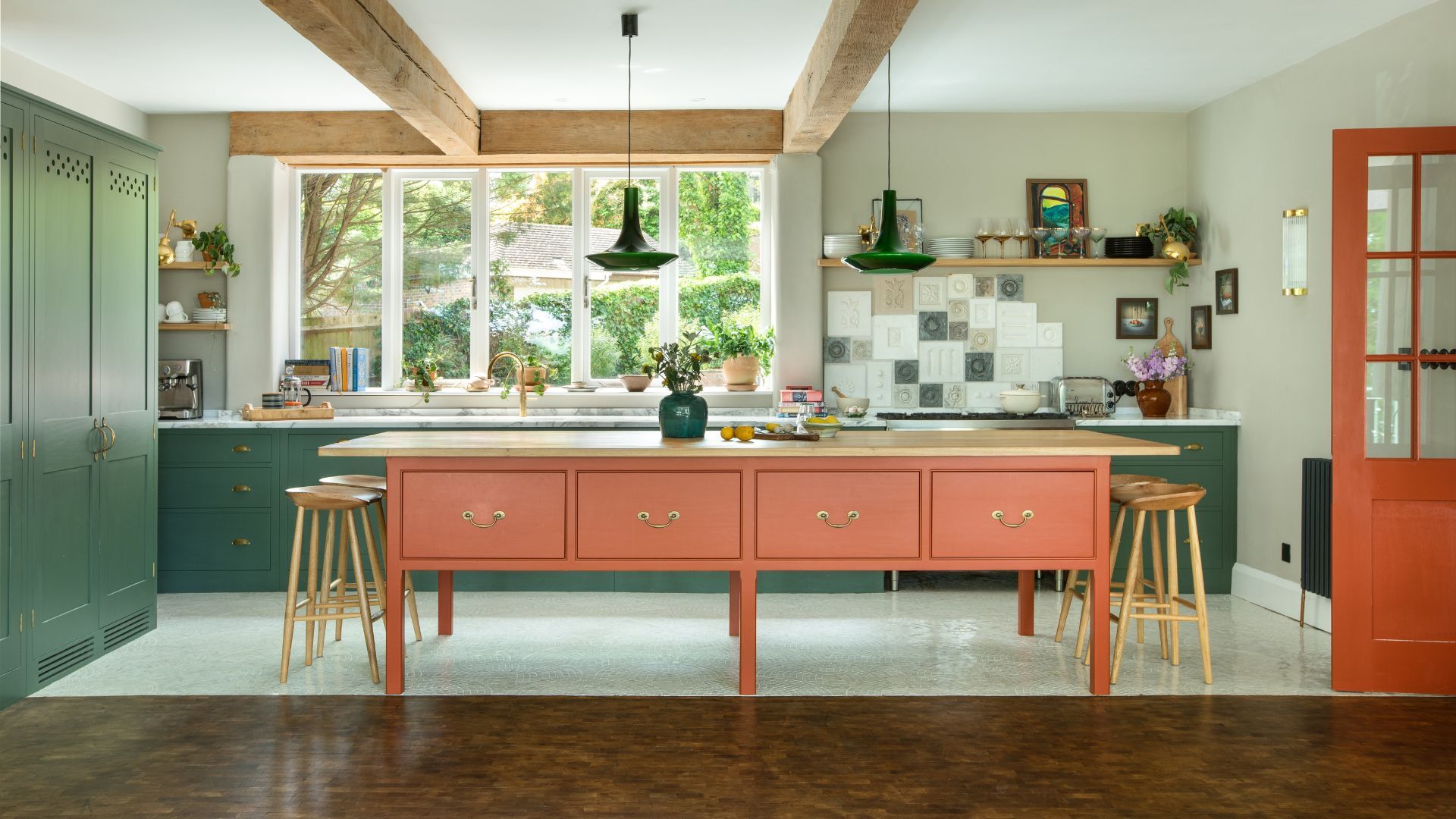 Orange and green is the bold color pairing quietly transforming homes in 2025 – here's 4 reasons why
Orange and green is the bold color pairing quietly transforming homes in 2025 – here's 4 reasons whyInterior designers are making the orange and green combination work wonders – this is how you can too
By Sophia Pouget de St Victor Published
-
 This Michelle-Pfeiffer-approved chair is made of a forebodingly unusual material, opening the debate: Is it a rustic stunner, or a danger to sitters?
This Michelle-Pfeiffer-approved chair is made of a forebodingly unusual material, opening the debate: Is it a rustic stunner, or a danger to sitters?The actress took to Instagram with a chair made of a controversially sharp material – and fans are unsure of how they feel about it
By Sophie Edwards Published